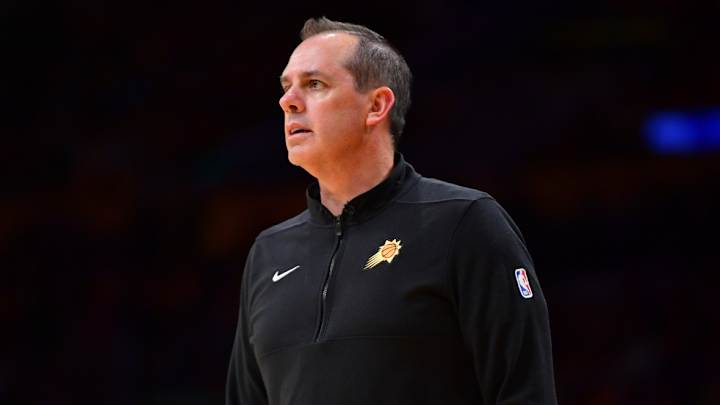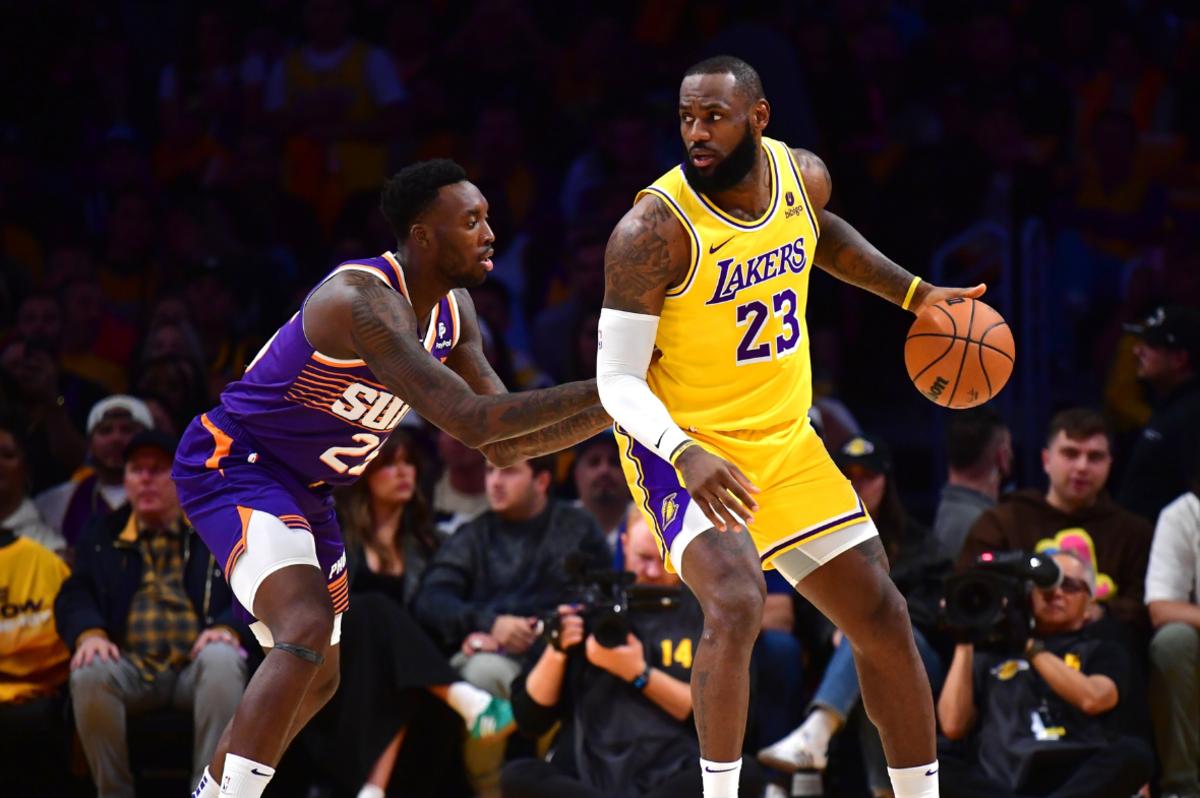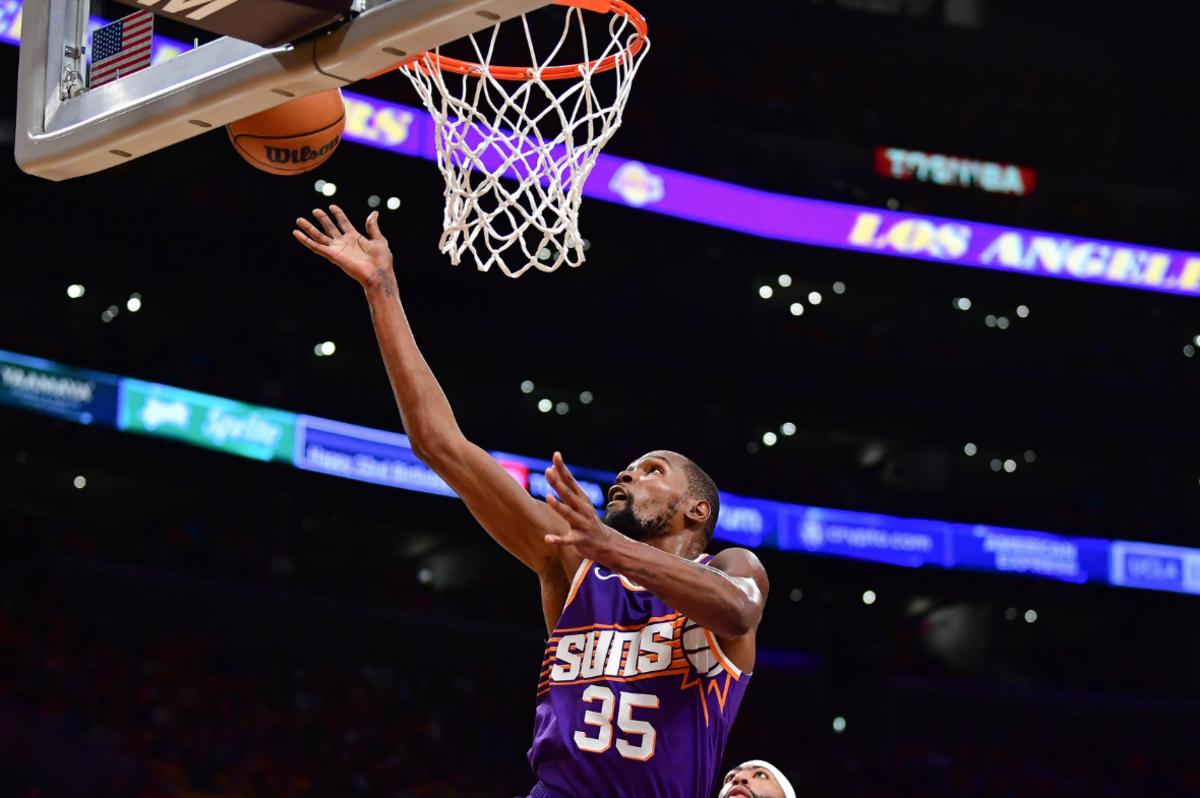What We Learned From Suns' Loss to Lakers

The Phoenix Suns lost a hard-fought game last night against the Los Angeles Lakers in 100-95 fashion.
In a game where so much went right, the fourth quarter was a disappointing effort. The Suns shot a mere 1-13 to begin the final period of play and allowed the Lakers to erase what was a double digit lead.
The encouraging thing is even though the offense stalled when it truly mattered, the depth still appears to be much better than anticipated. Devin Booker and Bradley Beal were both out due to injury and Phoenix still controlled the majority of the game against a top-tier contender.
Here are some things we've learned from the last two games, but particularly in the bout against L.A.:
Defense Looks Rock Solid

The Suns came into the year with many questions regarding how their defense would perform with a completely new roster and a perceived weakness down low. Many publications even went as far to say the Suns are a bottom-five defense in the league this season.
Despite all the doubt from outside circles, Phoenix has looked quite competent in the first two contests of the season against teams who were also perceived to be upper-echelon contenders in the west coming into the year.
Yes, the Suns did cede 60 points in the paint against the Lakers. Yes, the Suns only blocked three shots and only generated seven steals. Yes, Jusuf Nurkic struggled against Anthony Davis and his own foul trouble.
Despite all of the negatives, there were several positives to take from last night's performance. Most of all was the rebounding effort. The Suns grabbed 39 of 47 possible defensive rebound opportunities. That effort prevented the Lakers from getting an excessive amount of second-chance points.
The Suns also held the Lakers, who were fully healthy save for Jarred Vanderbilt, to a shade under 43% from the field, and 17% from three point range.
LeBron James had a quiet night outside of the final five minutes. Anthony Davis had various points in the game where he was relatively invisible. The role players failed to impress as well.
Josh Okogie, Drew Eubanks, and Jordan Goodwin deserve special mentions for taking charge the defensive side of the ball these first two games.
Shots Will Eventually Fall

One of the most interesting developments early on in the season is the defense actually outperforming the offense. Aside from the explosion from Devin Booker in the season opener, the offense has looked fairly pedestrian.
The most disappointing efforts thus far have been none other than Eric Gordon and Grayson Allen, as both guards were seen as among the best moves general manager James Jones made this past offseason.
Gordon shot 2-for-8 from three point range, while Allen shot 2-for-4 despite being quiet offensively much of the night vs. LA.
This isn't an ideal start to the season for either of the sharpshooters, but it shouldn't be a cause for immense concern, either. Sometimes the only explanation for stretches like these is "it'll start falling eventually," and much of the time, that's correct.
It's perfectly reasonable to believe two of the most crucial members of the Suns' core this season will progress to the mean as they grow more comfortable in the offense and as their star teammates get healthier.
Vogel Looks Like Right Man for the Job

Once again, it's only two games into the season, but Vogel has made Suns' ownership and management look very smart thus far.
Vogel appears much more adaptable and open to switching things up compared to former Suns head coach Monty Williams. Vogel will take timeouts as other teams build up runs. Vogel appears to involve his assistant coaches much more in-game. Vogel has made the right rotation decisions - for the most part.
Most of all, the defense overperfomlng likely directly ties in with the NBA champion's prowess as a defensive tactician. One point of critique could be Vogel's refusal to go deeper into the rotation, but that's a very quaint thing to get worked up over.
Vogel looks to be building up and fostering a championship-minded culture early on.
